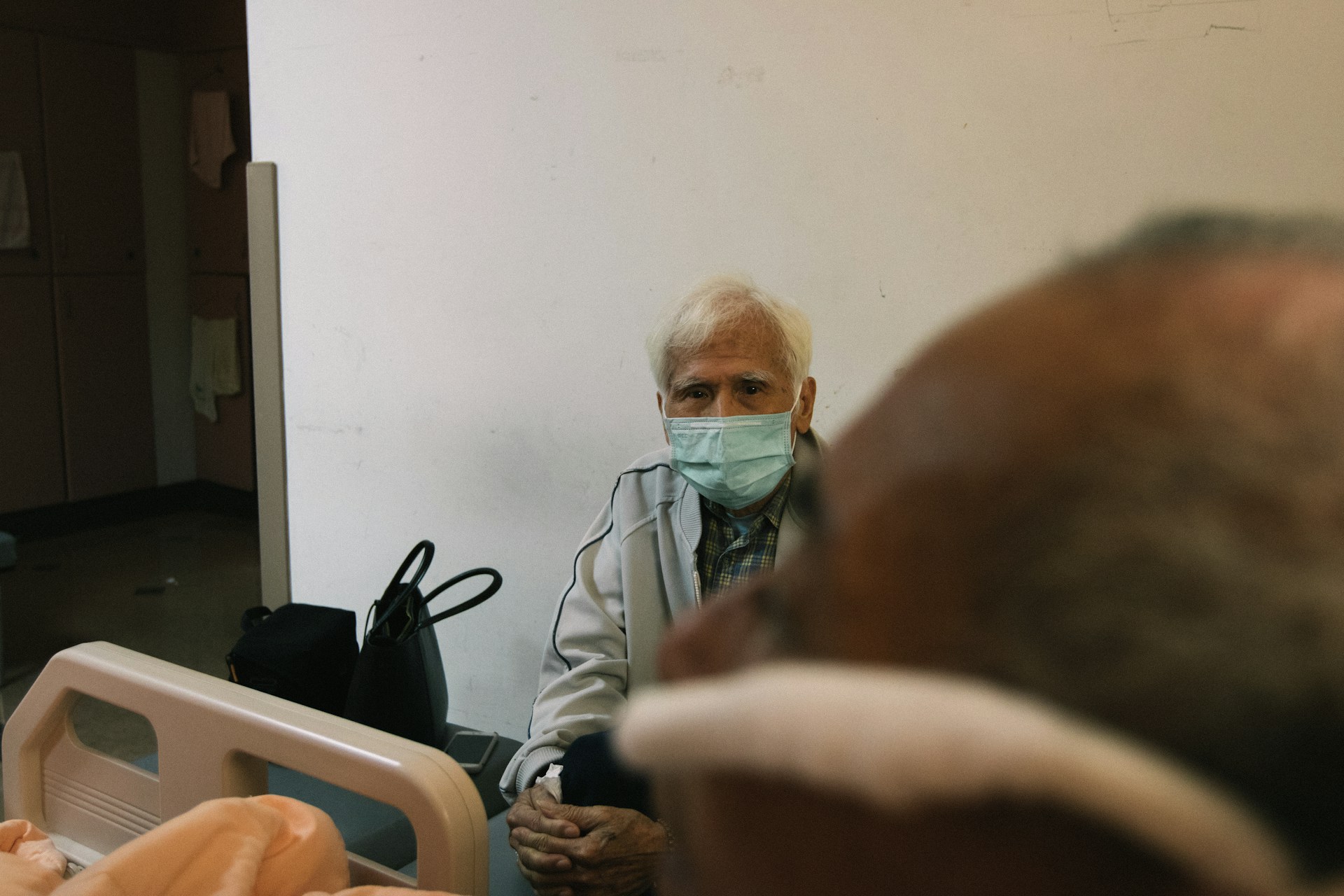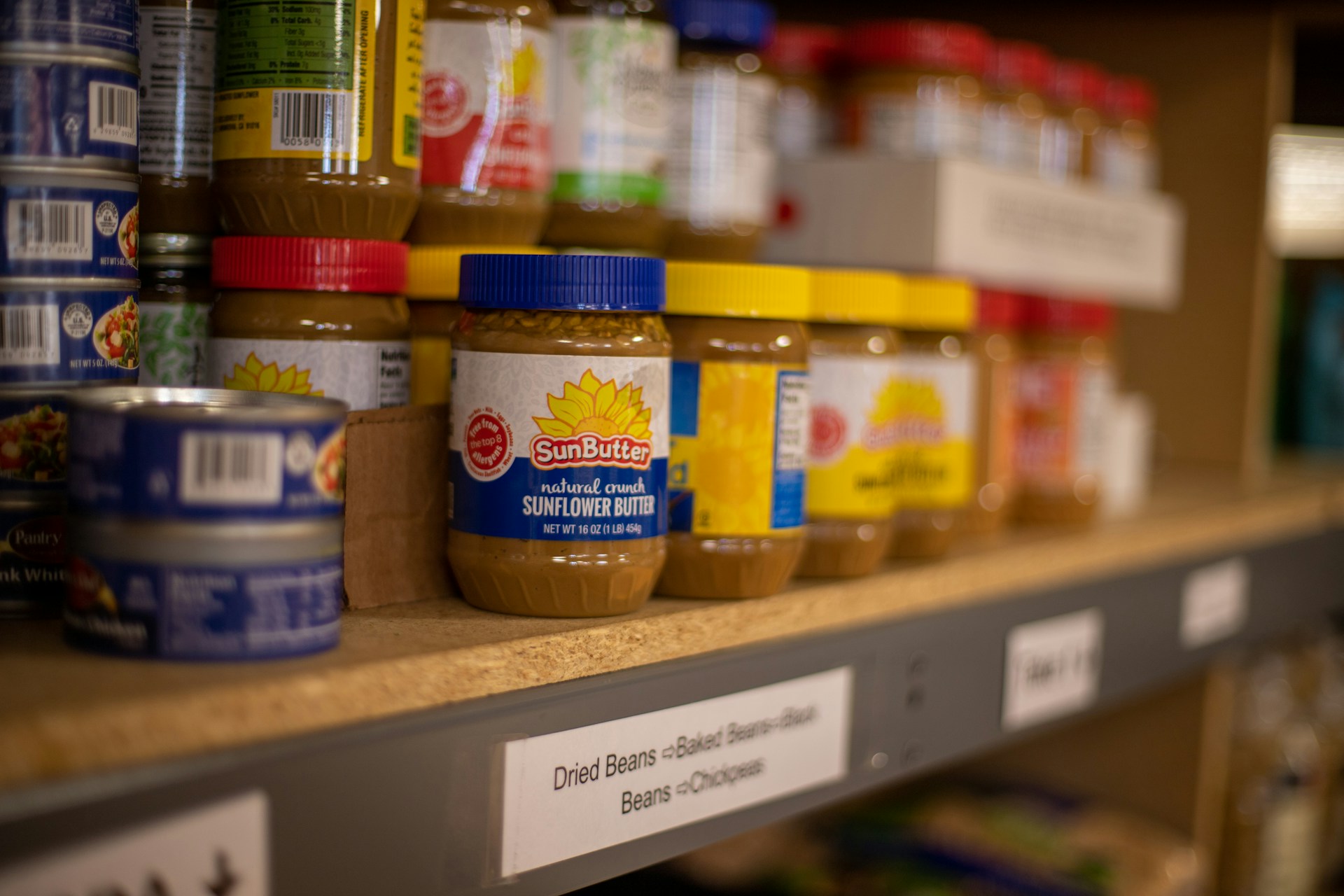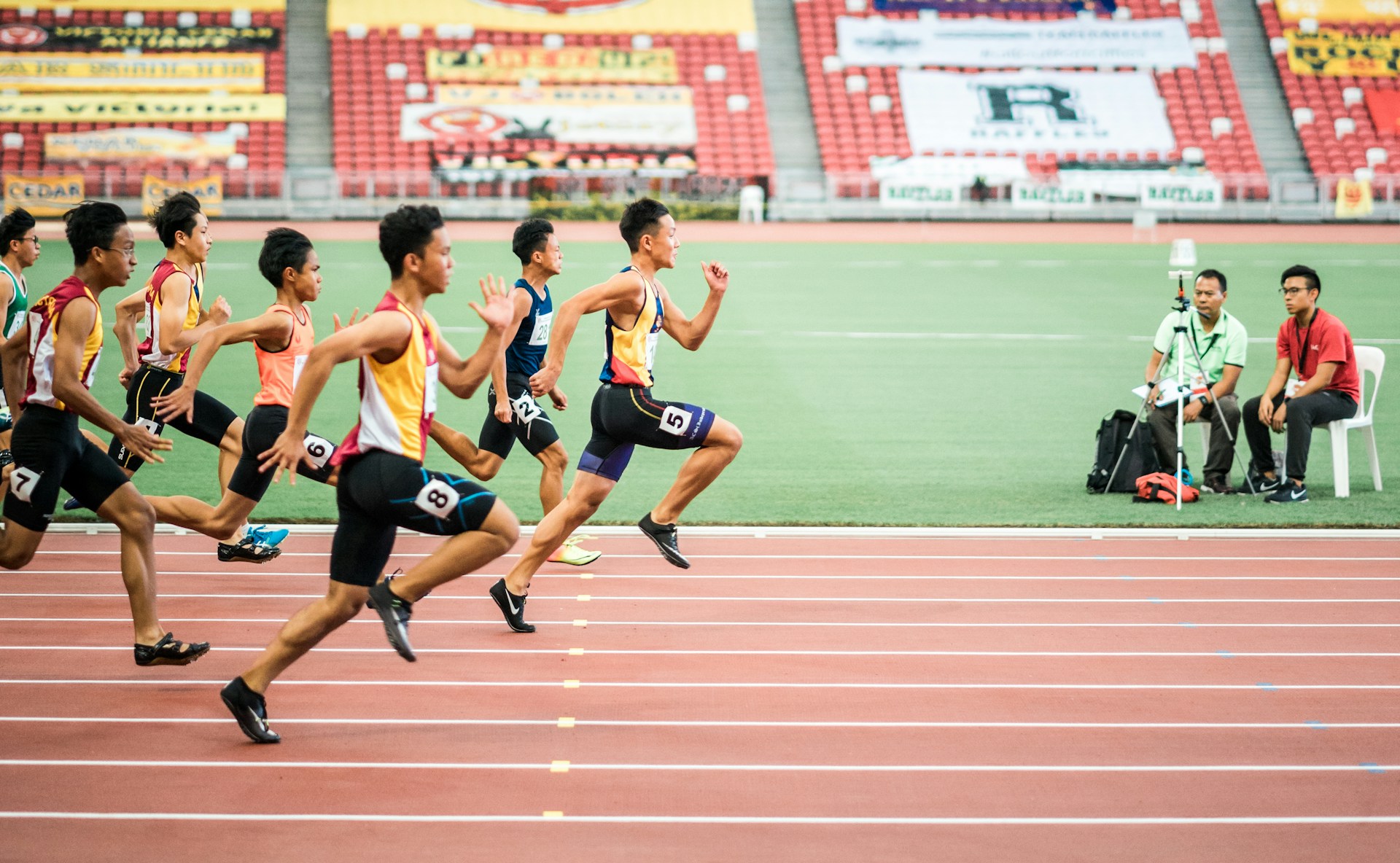Relationship between Energy Intake, Food Preferences, Peer Influence, and Parental Education with the Incidence of Overnutrition among Teenagers in Depok
Hubungan Asupan Energi, Preferensi Makan, Pengaruh Teman Sebaya, dan Pendidikan Orang Tua dengan Kejadian Gizi Lebih Remaja di Depok

Downloads
Background: Overnutrition among Indonesian teenagers is a nutritional problem that has increased in recent years from 7.3% to 13.5%. Factors that contribute in the improvement of nutritional status include diet, lifestyle, and socio-economics. Overnutrition can lead to health complications, including non-communicable diseases.
Objectives: To identify the relationship between energy intake, food preferences, peer influence, and parental education with the incidence of overnutrition among teenagers in Depok.
Methods: This study used an observational approach with a cross-sectional design. The sample was taken by stratified random sampling from a chosen Senior High School (SMA) in Depok with a total of 108 participants. Nutritional status was obtained by measuring body weight (BB) and height (TB) using BMI-for-age (BMI/U), energy intake was measured by interviewing the 2x24-hour food recall, food preferences used the food and beverage preference questionnaire (FBPQ), peered influence was measured using the peered influence scale (PIS), and parental education was gathered through a questionnaire. Relationship analysis was carried out by chi-square and Fisher's exact tests.
Results: Bivariate analysis shows that energy intake (p=0.030), food preferences (p=0.019), and peer influence (p=0. 006) were associated with the incidence of overnutrition. Parental education (father, p=0.365; mother, p=0.103) were not significantly associated with the incidence of overnutrition.
Conclusions: Individual factors among teenagers showed a relationship with the incidence of overnutrition. Teenagers need to pay attention to their energy intake, develop healthy food preferences, and utilize peered influence to adopt good eating behaviours to prevent overnutrition.
Bonnie, R. J., Backes, E. P., Alegria, M., Diaz, A. & Brindis, C. D. Fulfilling the Promise of Adolescence: Realizing Opportunity for All Youth. (The National Academies Press, 2019).
Sawyer, S. M., Azzopardi, P. S., Wickremarathne, D. & Patton, G. C. The age of adolescence. The Lancet Child and Adolescent Health. 2, 223-228 (2018).
Menteri Kesehatan Republik Indonesia. Permenkes Nomor 41 Tahun 2014 tentang Pedoman Gizi Seimbang. English Lang. Teach. (2014).
Bariyyah Hidayati, K. & . M. F. Konsep Diri, Adversity Quotient dan Penyesuaian Diri pada Remaja. J. Psikol. Indones. 5, 137-144 (2016).
Sivagurunathan, C., Umadevi, R., Rama, R. & Gopalakrishnan, S. Adolescent health: Present status and its related programmes in India. Are we in the right direction? J. Clin. Diagn. Res. 9, 1-6 (2015).
Rompas, K. F., Punuh, M. I. & Kapantow, N. H. Hubungan Antara Sosial Ekonomi Keluarga Dengan Status Gizi Pada Pelajar Di Smp Wilayah Kecamatan Malalayang 1 Kota Manado. Pharmacon. 5, 225-233 (2016).
Mar, A., Anni, N., Hj, A. & Tuah, M. Predictors of Overweight and Obesity Among Children and Adolescents in Developing Countries : A Literature Review. 618, 338–350 (2021).
WHO. Obesity and Overweight. (2021). Available at: https://www.who.int/news-room/fact-sheets/detail/obesity-and-overweight. (Accessed: 10 September 2023).
Riskesdas, jawa B. Riskesdas Jawa Barat. Lembaga Penerbit Badan Litbang Kesehatan (2019).
Agustina, R. et al. Psychosocial, Eating Behavior, and Lifestyle Factors Influencing Overweight and Obesity in Adolescents. Food Nutr. Bull. 42, 72-91 (2021).
Fitriani, R. Hubungan Antara Pengetahuan Gizi Seimbang, Citra Tubuh, Tingkat Kecukupan Energi dan Zat Gizi Makro dengan Status Gizi pada Siswa SMA Negeri 86 Jakarta. Gorontalo J. Heal. Sci. Community. 4, 29-38 (2020).
Fikawati, S. et al. Gizi Anak dan Remaja. (PT Raja Grafindo Persada, 2017).
San-Cristobal, R., Navas-Carretero, S., Martínez-González, M. Á., Ordovas, J. M. & Martínez, J. A. Contribution of macronutrients to obesity: implications for precision nutrition. Nat. Rev. Endocrinol. 16, 305–320 (2020).
Hartman-Petrycka, M., Witkoś, J., Lebiedowska, A. & Błońska-Fajfrowska, B. Who Likes Unhealthy Food with a Strong Flavour? Influence of Sex, Age, Body Mass Index, Smoking and Olfactory Efficiency on Junk Food Preferences. Nutrients. 14, (2022).
Cui, L. et al. Association between dietary related factors and central obesity among married women: China Health and Nutrition Survey. Appetite. 168, (2022).
Lanfer, A. et al. Taste preferences in association with dietary habits and weight status in European children: Results from the IDEFICS study. Int. J. Obes. 36, 27-34 (2012).
Sobek, G. & DÄ…browski, M. The importance of the taste preferences and sensitivity of mothers and their children in the aspect of excessive body weight of children. Front. Endocrinol. (Lausanne). 13, 1–9 (2022).
RagelienÄ—, T. & Grí¸nhí¸j, A. The influence of peers"² and siblings"² on children's and adolescents"² healthy eating behavior. A systematic literature review. Appetite 148, (2020).
Yarah, S. & Benita, M. Hubungan Informasi Konsumsi Junk Food dan Peran Teman Sebaya dengan Kejadian Obesitas pada Remaja Putri di SMA Abulyatama Kabupaten Aceh Besar. J. Aceh Med. 5, 87–94 (2021).
Sebataraja, L. R., Oenzil, F. & Asterina, A. Hubungan Status Gizi dengan Status Sosial Ekonomi Keluarga Murid Sekolah Dasar di Daerah Pusat dan Pinggiran Kota Padang Lisbet Rimelfhi Sebataraja,. J. Kesehat. Andalas 3, 182–187 (2014).
Eidsdottir, S., Kristjansson, A. L., Sigfusdottir, I. D., Garber, C. E. & Allegrante, J. P. Secular Trends in Overweight and Obesity Among Icelandic Adolescents: Do Parental Education Levels and Family Structure Play a Part? Scand. J. Public Health. 41, 384–391 (2013).
Telisa, I., Hartati, Y. & Haripamilu, A. D. Faktor Risiko Terjadinya Obesitas Pada Remaja SMA. Faletehan Heal. J. 7, 124-131 (2020).
Sina, E. et al. Association of infant feeding patterns with taste preferences in european children and adolescents: A retrospective latent profile analysis. Nutrients 11, (2019).
Artadini, G. M., Simanungkalit, S. F. & Wahyuningsih, U. The Relationship Between Eating Habits, Social Media Exposure and Peers With Nutritional Status of Nutrition Students at UPN Veteran Jakarta. Jkg 14, 317–329 (2022).
Prayitno, F. F., Angraini, D. I., Himayani, R. & Graharti, R. Hubungan Pendidikan dan Pengetahuan Gizi Dengan Status Gizi Ibu Hamil pada Keluarga dengan Pendapatan Rendah di Kota Bandar Lampung. Medula. 8, 225-229 (2019).
Amrynia, S. U. & Prameswari, G. N. Hubungan Pola Makan, Sedentary Lifestyle, dan Durasi Tidur dengan Kejadian Gizi Lebih Pada Remaja (Studi Kasus di SMA Negeri 1 Demak). Indones. J. Public Heal. Nutr. 2, 112–121 (2022).
Murbawani, E. A. Hubungan Persen Lemak Tubuh Dan Aktivitas Fisik Dengan Tingkat Kesegaran Jasmani Remaja Putri. J. Nutr. Heal. 5, 69-84 (2017).
Andina Rachmayani, S., Kuswari, M. & Melani, V. Hubungan Asupan Zat Gizi dan Status Gizi Remaja Putri di SMK Ciawi Bogor. Indones. J. Hum. Nutr. 5, 125-130 (2018).
Kementerian Kesehatan Republik Indonesia. Pmk No.28 Tahun 2019 Tentang Akg Yang Dianjurkan Untuk Masyarakat Indonesia. (2019). Available at: http://hukor.kemkes.go.id/uploads/produk_hukum/PMK_No__28_Th_2019_ttg_Angka_Kecukupan_Gizi_Yang_Dianjurkan_Untuk_Masyarakat_Indonesia.pdf.
Azzahra, A. Hubungan Pola Makan, Aktivitas Fisik Dan Intensitas Penggunaan Media Sosial Dengan Status Gizi Lebih Pada Remaja Di Sma Negeri 14 Jakarta Timur. Indones. J. Heal. Dev. 4, 1–8 (2022).
Banjarnahor, R. O., Banurea, F. F., Panjaitan, J. O., Pasaribu, R. S. P. & Hafni, I. Faktor-faktor risiko penyebab kelebihan berat badan dan obesitas pada anak dan remaja: Studi literatur. Trop. Public Heal. J. 2, 35–45 (2022).
Dan, D. & Fisik, A. Gambaran konsumsi minuman manis, makan gorengan, depresi dan aktivitas fisik pada obesitas usia dewasa. 8, 173–180 (2022).
Rachmayani, S. A., Kuswari, M. & Melani, V. Hubungan Asupan Zat Gizi dan Status Gizi Remaja Putri di SMK Ciawi Bogor. Indones. J. Hum. Nutr. 5, 125–130 (2018).
Soekriman. et al. Hidup Sehat: Gizi Seimbang Dalam Siklus Kehidupan Manusia. (PT. Gramedia Pustaka Utama, 2006).
Yosi AS, L., Febry, F. & Etrawati, F. Food Familiarity Influence Food Preferences Among High School Student in Ogan Ilir District. J. Ilmu Kesehat. Masy. 11, 113–122 (2020).
Lestari, A. A. & Adriani, M. Perbedaan Citra Diri dan Kesukaan Makanan Tertentu pada Siswa-Siswi Gizi Lebih dan Normal. Media Gizi Kesmas. 9, 10-16 (2020).
Qiu, C. & Hou, M. Association between food preferences, eating behaviors and socio-demographic factors, physical activity among children and adolescents: A cross-sectional study. Nutrients 12, 1–16 (2020).
Alghadir, A. H., Iqbal, Z. A. & Gabr, S. A. The relationships of watching television, computer use, physical activity, and food preferences to body mass index: Gender and nativity differences among adolescents in saudi arabia. Int. J. Environ. Res. Public Health 18, 1–12 (2021).
Ali, R. & Nuryani, N. Sosial Ekonomi, Konsumsi Fast Food Dan Riwayat Obesitas Sebagai Faktor Risiko Obesitas Remaja. Media Gizi Indones. 13, 123 (2018).
Hardinsyah & Supariasa, I. D. N. Ilmu Gizi Teori & Aplikasi. (Penerbit Buku Kedokteran EGC, 2016).
Chairiah, P. Hubungan Gambaran Body Image dan Pola Makan Remaja Putri di SMAN 38 Jakarta. (Universitas Indonesia, 2012).
Permatasari, T. et al. Kebiasan Sarapan, Asupan Zat Gizi Makro dan Status Gizi pada Remaja di Kota Medan. J. Pendidik. dan Konseling. 4, 8755-8763 (2022).
Beckerman, J. P., Alike, Q., Lovin, E., Tamez, M. & Mattei, J. The Development and Public Health Implications of Food Preferences in Children. Front. Nutr. 4, 1–8 (2017).
Liem, D. G. & Russell, C. G. The Influence of Taste Liking on the Consumption of Nutrient Rich and Nutrient Poor Foods. Frontiers in Nutrition. 6, 1-10 (2019).
AlFaris, N. A., Al-Tamimi, J. Z., Al-Jobair, M. O. & Al-Shwaiyat, N. M. Trends of fast food consumption among adolescent and young adult Saudi girls living in Riyadh. Food Nutr. Res. 59, 1–10 (2015).
Vabí¸, M. & Hansen, H. The Relationship between Food Preferences and Food Choice: A Theoretical Discussion. International Journal of Business and Social Science. 5, 145-157 (2014).
Nekitsing, C., Hetherington, M. M. & Blundell-Birtill, P. Developing Healthy Food Preferences in Preschool Children Through Taste Exposure, Sensory Learning, and Nutrition Education. Curr. Obes. Rep. 7, 60–67 (2018).
Lampur, A. et al. Associations between liking for fat, sweet or salt and obesity risk in French adults: A prospective cohort study. Int. J. Behav. Nutr. Phys. Act. 13, 1-15 (2016).
Widiyanto, A., Murti, B. & Soemanto, R. Multilevel Analysis on the Effects of Socio-Cultural, Lifestyle Factors, and School Environment, on the Risk of Overweight in Adolescents, Karanganyar District, Central Java. J. Epidemiol. Public Heal. 03, 94–104 (2018).
Risti, K. N., Pamungkasari, E. P. & Suminah, S. Relationship of Peer Influence and Family Eating Habits on Healthy Food Choices in Overweight Adolescents in Surakarta. Media Gizi Indones. 16, 124 (2021).
Holmberg, C., E. Chaplin, J., Hillman, T. & Berg, C. Adolescents' presentation of food in social media: An explorative study. Appetite. 99, 121-129 (2016).
Al-Haifi, A. R. et al. Prevalence of overweight and obesity among Kuwaiti adolescents and the perception of body weight by parents or friends. PLoS One 17, 1–12 (2022).
Özer, B. K. et al. Peer relations linking overweight and obesity, and mediator factors among Turkish adolescents. Pap. Anthropol. 30, 51–69 (2022).
Lim, J. & Meer, J. How do peers influence BMI? Evidence from randomly assigned classrooms in South Korea. Soc. Sci. Med. 197, 17–23 (2018).
Humairoh, C. & Nugroho, P. Hubungan Tingkat Pendidikan Ibu dan Pengetahuan Gizi dengan Kejadian Obesitas Pada Remaja di SMPN 18 Samarinda. Borneo Student Res. 2, 1195-1201 (2021).
Rahmawati, D. P., Indarto, D. & Hanim, D. Correlation Of Snacking Frequency, Hemoglobin Levels, Physical Activity And Pocket Money With Nutritional Status In Female Adolescents. Media Gizi Indones. 16, 2017-214 (2021).
Copyright (c) 2024 Amerta Nutrition

This work is licensed under a Creative Commons Attribution-ShareAlike 4.0 International License.
AMERTA NUTR by Unair is licensed under a Creative Commons Attribution-ShareAlike 4.0 International License.
1. The journal allows the author to hold the copyright of the article without restrictions.
2. The journal allows the author(s) to retain publishing rights without restrictions
3. The legal formal aspect of journal publication accessibility refers to Creative Commons Attribution Share-Alike (CC BY-SA).
4. The Creative Commons Attribution Share-Alike (CC BY-SA) license allows re-distribution and re-use of a licensed work on the conditions that the creator is appropriately credited and that any derivative work is made available under "the same, similar or a compatible license”. Other than the conditions mentioned above, the editorial board is not responsible for copyright violation.












































